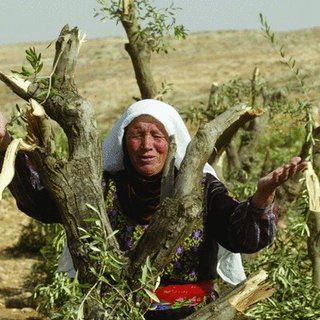
Mahmoud Darwsh did not express the experience of exile with words directly connected to place after it had become an existential state for him, intimately connected to an important motif in his poetry, namely absence.
Andry-Andreja Jakuš
Mahmoud Darwish did not express the experience of exile with words directly connected to place after it had become an existential state for him, intimately connected to an important motif in his poetry, namely absence.
This is a motif that one does not find in the first state of Palestinian poetry.
As for places of exile, they are places and times that change their kin.
As if existentially exile had become the fundamental principle and everything else was secondary.
This dialectic is confirmed:
“O martyrs, you were right.
For the home is more beautiful
Than the road leading to it,
Despite the flowers’ betrayal.
But the windows do not look out
At the sky of the heart ….
And exile is exile, here and there.
We never went into exile in vain.”
When exile resides in the poet’s mind then place is no longer the only defining characteristic in the exiled person’s identity.
“Now in exile, yes at home
At the age of sixty quick years
They light candles for you.”
The relationship with place in Darwish’s works has become metaphysical.
“My wing was small on the wind that year
I figured that the place would recognize
The mothers and the smell of sage. No one
Told me that this place was called a land
And that beyond the land there were borders.
And that beyond the borders there was a place called dispersion and exile,
Ours.
I was not yet in need of an identity
But they, those who take us on
A tank move the place on trucks
To a ravenous region.
The place is compassion.”
FEW NOTES MORE
Memory and its representations touch very significantly upon questions of identity, of nationalism, of power and authority.
National identity always involves narratives (historically based and generated) — of the nation’s past, its founding fathers and documents, major, seminal events, and so forth.
Perhaps the greatest battle Palestinians have waged as a people has been over the right to a remembered presence, and with that presence, the right to possess and reclaim a collective historical reality. Their Reality.
A similar battle has been fought by all colonized peoples whose past and present were dominated by outside powers who had first conquered the land, and then re-wrote history so as to appear in that history as the true owners of that land.
The fate of Palestinian history has been a tragic one, since not only was independence not gained, but there was little collective understanding of the importance of constructing a collective history as a part of trying to gain independence.
Palestinian people have remained scattered victims of barbarous Zionism that continues to take more and more of Palestinian land and its spiritual and physical history.
__________________
Andry-Andreja Jakus, a Professor at Hacettepe University, Zagreb, Croatia, is Academic Writer, Bibliographer, Lexicographer, Translator, Language Tutor and Reviewer. In her columns, she writes on poetry, philosophy, cultural studies, history of religions etc.
Courtesy: Andry-Andreja Jakus/LinkedIn – Published with permission of the author